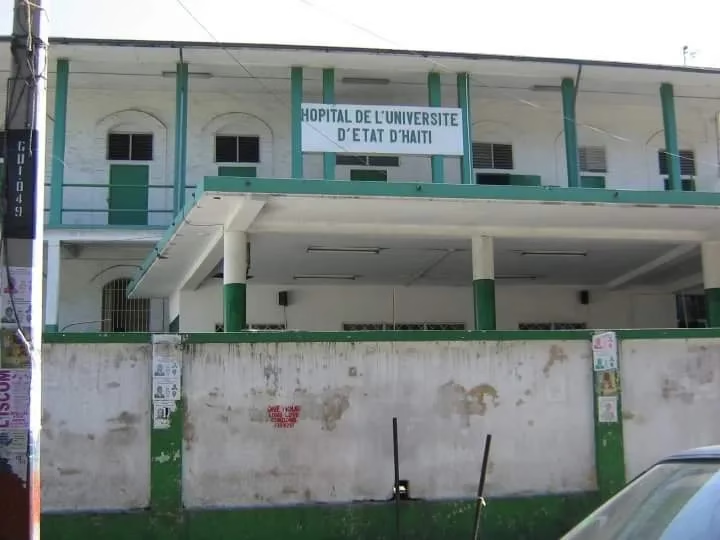The State University of Haiti Hospital (Hôpital de l’Université d’État d’Haïti – HUEH), widely recognized as General Hospital, suffered extensive damage from a devastating fire on Thursday, February 13, 2025. Social media platforms were flooded with footage showing intense flames consuming critical areas of the Port-au-Prince facility. The blaze caused substantial destruction to essential departments, including the central archives, radiology unit, pharmacy, and both orthopedic and surgical wings.
Local intelligence suggests that members of Viv Ansanm, a notorious gang coalition known for perpetrating violence across the capital, orchestrated the attack. While official statements from Haitian authorities are pending, this incident represents another strike in an ongoing campaign targeting vital city infrastructure. The attack further destabilizes an already precarious situation, where persistent insecurity threatens national stability.
As one of Port-au-Prince’s primary healthcare facilities, General Hospital serves as a crucial emergency care provider, particularly during times of crisis. The institution, along with other public facilities, has been grappling with the repercussions of Haiti’s political and security turmoil for months. The country’s healthcare infrastructure, already strained by economic challenges, now faces unprecedented pressure. The partial destruction of General Hospital, which provides essential medical services to thousands daily, severely impacts healthcare accessibility for countless Haitians.
This incident joins a growing list of violent attacks plaguing Haiti, particularly in Port-au-Prince. For months, armed gangs have systematically targeted public institutions, including healthcare facilities, educational establishments, and government offices. The nation, already destabilized by ongoing political unrest, is spiraling into unprecedented chaos, with citizens’ safety and access to basic services becoming increasingly compromised.
The assault on General Hospital underscores the crisis’s magnitude. A deadly attack near the facility in December 2024 resulted in multiple casualties, including law enforcement officers and media personnel. The surge in gang-related violence reflects the deteriorating state authority and governmental inability to protect public institutions.
The hospital fire raises grave concerns about the government’s capability to restore order and maintain healthcare access. The combination of damaged infrastructure and escalating violence severely hampers emergency medical responses, putting countless lives at risk. Other operational public hospitals, including Hôpital La Paix, are experiencing severe strain while attempting to meet increased medical demands amid widespread urban violence.
The Haitian administration faces intensifying pressure to address the mounting violence. Securing public infrastructure has become a paramount concern for the population. Swift and effective measures are essential to curtail gang influence and rebuild public confidence in state institutions.
Global stakeholders maintain vigilant oversight of Haiti’s evolving crisis. Enhanced security protocols must be established to safeguard critical infrastructure and maintain baseline stability. A synchronized intervention from domestic and international governing bodies has become imperative to halt further decline and secure fundamental services for Haiti’s population.
The recent assault on General Hospital exemplifies Haiti’s susceptibility to increasingly emboldened gang factions, as violence tightens its hold on Port-au-Prince. The nation’s path to stability demands resolute action from authorities to reestablish order, protect public facilities, and ensure civilian safety. Within this turbulent landscape, each passing day without tangible interventions pushes Haiti further toward an unprecedented humanitarian emergency.







